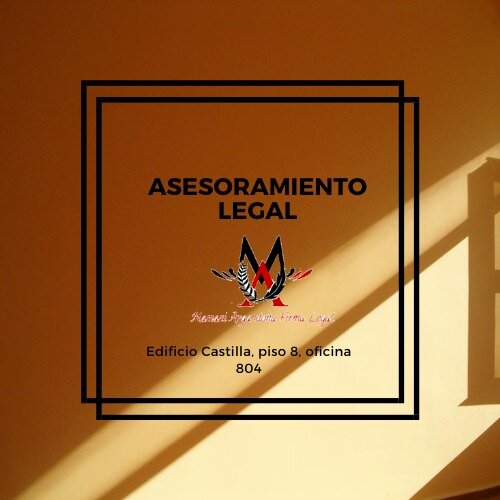Best Private Equity Lawyers in Bolivia
Share your needs with us, get contacted by law firms.
Free. Takes 2 min.
Or refine your search by selecting a city:
List of the best lawyers in Bolivia
About Private Equity Law in Bolivia
Private equity refers to investments made directly into private companies or the acquisition of public companies resulting in their delisting from public equity markets. In Bolivia, private equity is an evolving sector, playing an important role in supporting business growth, innovation, and competitiveness. While the Bolivian market is smaller and less mature compared to larger economies, private equity opportunities exist, particularly in agriculture, mining, energy, and infrastructure. The legal environment is influenced by both local regulations and the need to align with international best practices, making guidance from specialized legal professionals important.
Why You May Need a Lawyer
Legal assistance is crucial in private equity transactions due to the complexity of laws and regulatory requirements involved. Common situations where you may require legal help include:
- Structuring investment vehicles for local or foreign investors
- Conducting due diligence on target companies
- Drafting and negotiating shareholder agreements
- Ensuring compliance with Bolivian foreign investment and tax laws
- Managing merger and acquisition processes
- Protecting minority investor rights
- Handling cross-border transactions and capital repatriation
- Resolving disputes among partners or with government authorities
- Obtaining necessary permits and registrations
- Understanding sector-specific restrictions and incentives
Local Laws Overview
Private equity investments in Bolivia are subject to several legal and regulatory frameworks. The main points to consider include:
- Corporate Law: The Bolivian Commercial Code regulates the formation and governance of corporations, partnerships, and other business entities. It sets out the rules for establishing legal entities eligible to receive private equity investments.
- Foreign Investment Law: Bolivia provides certain protections and guarantees for foreign investors, though some sectors have restrictions. Registration of foreign investments with the Bolivian Ministry of Planning is necessary to secure these protections.
- Securities Regulation: The Authority of Supervision of the Financial System (ASFI) regulates securities offerings and reporting obligations, affecting certain private equity structures.
- Tax Law: All private equity transactions are subject to tax regulations regarding capital gains, withholding taxes, and value-added tax. Tax incentives may be available in specific sectors or geographic regions.
- Labor and Social Security Laws: Investors and companies must comply with employment regulations, worker rights, and social security obligations when acquiring or investing in Bolivian companies.
- Antitrust and Competition Law: Bolivian law restricts anti-competitive practices in mergers or acquisitions and may require notification or approval for certain transactions.
- Sectorial Regulations: Certain industries, such as hydrocarbons, mining, and telecommunications, are subject to additional laws and government oversight.
Frequently Asked Questions
What is private equity in the context of Bolivia?
Private equity in Bolivia involves investing capital in private companies or ventures not publicly listed. The investments can be used to finance expansion, new projects, or company turnarounds.
Are there restrictions on foreign private equity investment in Bolivia?
Generally, foreign direct investment is permitted, but some sectors such as hydrocarbons and natural resources may have restrictions or require state participation.
How are private equity funds structured in Bolivia?
Private equity investments are commonly structured through local corporations or limited liability companies, depending on the needs of the investors and the nature of the investment.
What due diligence is required before investing?
Legal due diligence typically covers company incorporation, title to assets, contracts, licenses, tax compliance, labor obligations, and the regulatory status of the business.
What are the main exit strategies for private equity investors in Bolivia?
Common exit strategies include selling shares to strategic buyers, initial public offerings, or bringing in new investors through secondary sales.
How is profit from private equity investment taxed?
Profits are taxed according to Bolivian corporate and personal income tax rates. Capital gains, dividends, and interest may be subject to specific tax treatments.
Can disputes arising from private equity deals be resolved through arbitration?
Yes, parties can agree to resolve disputes through domestic or international arbitration, provided the arbitration clause is properly included in agreements.
What government approvals are required for foreign investors?
Foreign investments must be registered with the Ministry of Development Planning. Additional approvals may be required for regulated sectors.
Are there limits on repatriating capital or profits from Bolivia?
In general, there are no limits, but funds must comply with currency controls and proper documentation as set out by the Bolivian Central Bank and tax authorities.
Is private equity investment regulated by a specific Bolivian authority?
There is no single authority dedicated solely to private equity. Regulation depends on the sector, with oversight from bodies such as the ASFI, the Ministry of Planning, and sectoral regulators.
Additional Resources
If you are seeking more information or assistance about private equity in Bolivia, consider the following resources:
- Ministry of Development Planning - For foreign investment registration and guidance
- Authority of Supervision of the Financial System (ASFI) - For information on financial regulation and supervised entities
- Bolivian Tax Service (SIN) - For tax obligations and incentives
- Bolivian Stock Exchange (Bolsa Boliviana de Valores) - For advice on public market regulations
- Local and international law firms specializing in corporate law and investment
- Private equity associations and business chambers for networking and sectoral information
Next Steps
If you are considering or preparing for a private equity transaction in Bolivia, the following steps can help you proceed effectively:
- Identify the type of investment and industry sector for your private equity activities
- Collect relevant corporate and financial documentation about your target or investment vehicle
- Consult with a Bolivian lawyer experienced in private equity transactions to understand the specific legal and regulatory requirements
- Conduct thorough due diligence with legal, tax, and financial advisors
- Ensure all agreements and contracts are carefully drafted and include provisions for dispute resolution
- Register the investment with the appropriate government bodies and comply with all reporting obligations
- Develop an exit strategy in consultation with your legal and financial team
Legal guidance is essential to navigate the complexities of private equity in Bolivia. Engaging a specialized attorney early in the process helps avoid common pitfalls and maximizes the chance of a successful investment.
Lawzana helps you find the best lawyers and law firms in Bolivia through a curated and pre-screened list of qualified legal professionals. Our platform offers rankings and detailed profiles of attorneys and law firms, allowing you to compare based on practice areas, including Private Equity, experience, and client feedback.
Each profile includes a description of the firm's areas of practice, client reviews, team members and partners, year of establishment, spoken languages, office locations, contact information, social media presence, and any published articles or resources. Most firms on our platform speak English and are experienced in both local and international legal matters.
Get a quote from top-rated law firms in Bolivia — quickly, securely, and without unnecessary hassle.
Disclaimer:
The information provided on this page is for general informational purposes only and does not constitute legal advice. While we strive to ensure the accuracy and relevance of the content, legal information may change over time, and interpretations of the law can vary. You should always consult with a qualified legal professional for advice specific to your situation.
We disclaim all liability for actions taken or not taken based on the content of this page. If you believe any information is incorrect or outdated, please contact us, and we will review and update it where appropriate.
Browse private equity law firms by city in Bolivia
Refine your search by selecting a city.

















